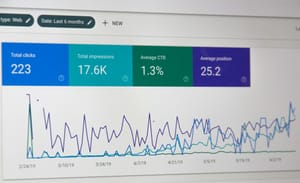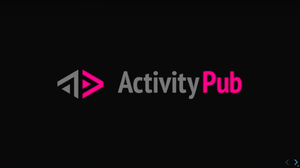During my years of experience as an SEO specialist and blogger, I've explored various website creation platforms.
From WordPress to Wix, Squarespace, Blogger and Weebly, I've tried them all. And I've found that they don't all measure up from an SEO standpoint.
Everything changed when I discovered Ghost CMS. A modern content management system, specially designed for people like you who want to create a high-performing website or blog on search engines.
Very fast and incorporating all the essential SEO features, Ghost CMS is all you need to create an optimized website and turn it into a real traffic machine.
Do you want to improve your search engine ranking and outperform your competitors? Keep reading!
1.Introduction to SEO and Ghost CMS
Search engine optimization (SEO) is a crucial element for improving a website's visibility in search results.
It encompasses a variety of tactics aimed at optimizing web pages, thereby improving their ranking and relevance for targeted keywords. This includes keyword research, on-page optimization, and writing relevant content.
Ghost CMS presents itself as a modern publishing platform, designed to be fast and optimized for SEO.
It stands out with several built-in features beneficial for SEO, such as automatic and customizable metadata, social media integration, XML sitemaps, canonical tags, and structured data.
Compared to other popular CMS platforms like WordPress, Ghost CMS distinguishes itself with its simplicity and focus on optimized publishing. It offers slightly fewer customization options, but its performance and speed are optimal, which is essential for good SEO.
2.Ghost CMS: Optimal Performance with JavaScript
Ghost CMS is built on a JavaScript foundation, using Node.js for its backend. This modern technology is known for its speed and lightweight nature, offering increased performance compared to more traditional languages like PHP.
The use of server-side JavaScript allows Ghost CMS to efficiently handle requests and deliver dynamic content quickly.
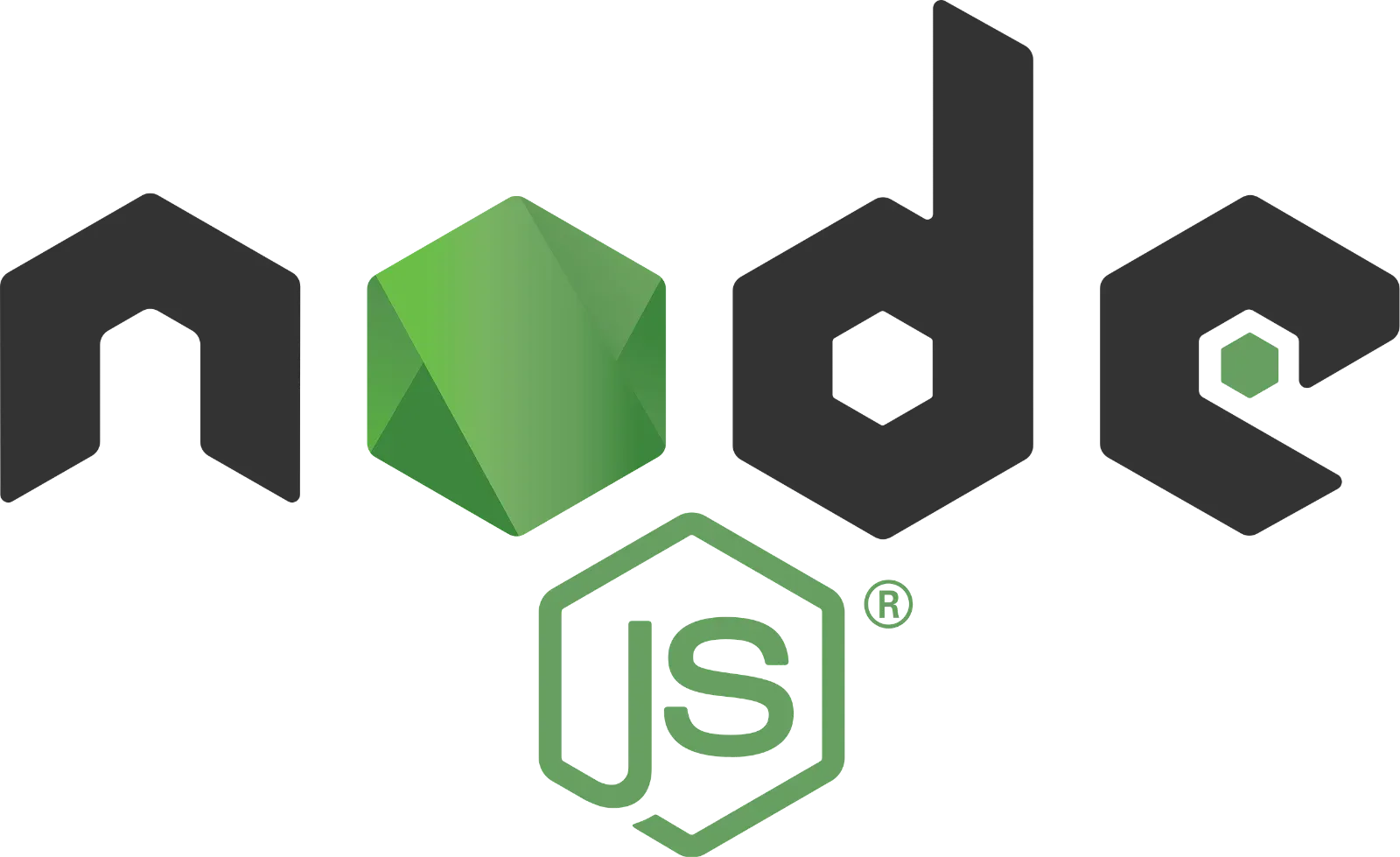
Speed Comparisons Between Ghost CMS and Other Popular CMS like WordPress
The speed of Ghost CMS stands out particularly when compared to CMS platforms like WordPress. Independent tests have shown that Ghost can be far faster than WordPress.
This difference is largely due to the simplicity and efficiency of Ghost's code, as well as the absence of heavy plugins that can slow down WordPress.
Impact of Site Speed on SEO and User Experience
Search engines, like Google, use page loading speed as an important criterion for ranking websites.
A fast site improves the user experience, reduces bounce rates, and increases time spent on the site, thus positively contributing to SEO.
Moreover, good loading performance is essential for mobile SEO, where speed is even more critical.
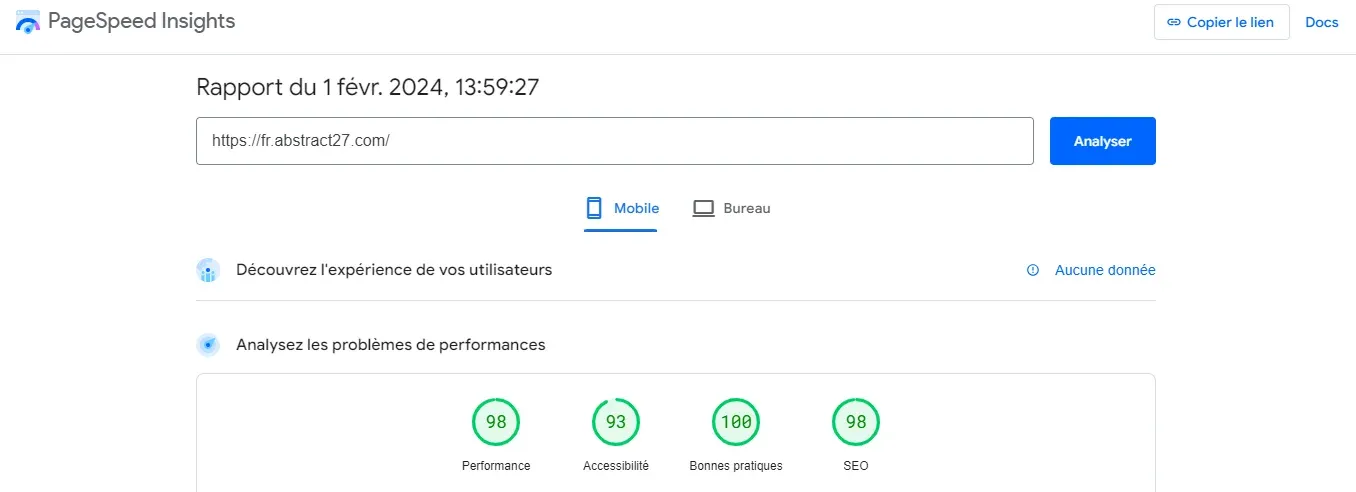
In summary, Ghost CMS's technical foundation in JavaScript, combined with its superior speed compared to other popular CMS platforms, plays a crucial role in SEO optimization and provides an enhanced user experience.
These elements are essential for a modern website seeking to stand out in SERPs (search engine results pages) and captivate its audience.
3.Built-in SEO Features of Ghost CMS
Ghost CMS offers a range of built-in SEO features that facilitate site optimization for search engines.
Among these features are automatic metadata management, social media integration, XML sitemap creation, canonical tags usage, and structured data support.
These integrated tools improve the visibility and ranking of Ghost sites in search engines without requiring additional plugins or extensions.
Automatic and Customized Metadata Features
Ghost CMS automatically manages essential SEO metadata, such as title and description tags.
When creating an article or page, Ghost fills in this metadata using existing content.
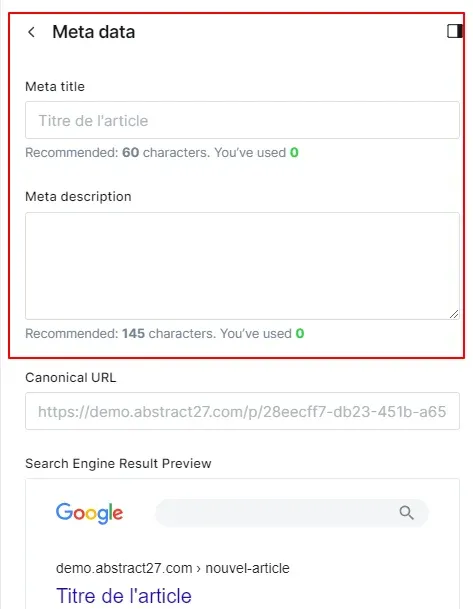
However, for finer control, it's essential to customize this metadata for each publication to optimize its appeal in search results.
This customization allows you to target specific keywords and improve content relevance for search queries.
Ghost CMS even allows you to directly preview your metadata changes using the Google preview feature at the bottom.
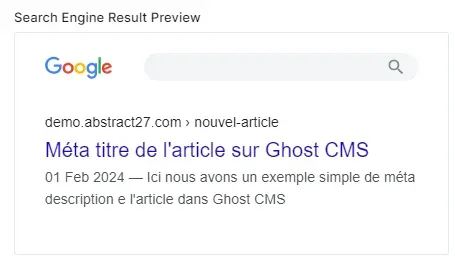
Here's how to write optimized meta titles and descriptions:
Meta Title:
- Ideal Length: Keep it between 50-60 characters to avoid truncation in search results.
- Relevant Keywords: Place the main keyword near the beginning of the title.
- Clarity and Relevance: The title should accurately reflect the content of the page.
- Uniqueness: Each page should have a unique meta title.
Meta Description:
- Ideal Length: Aim for between 145-150 characters to avoid truncation in search results.
- Keyword Incorporation: Naturally integrate targeted keywords.
- Accurate Description: Provide a precise and compelling summary of the page content.
- Call to Action: Encourage the user to click, for example, "Learn More," "Discover," "Enjoy".
- Avoid Duplication: Each page should have a unique meta description.
- Use Compelling Language: Be clear, direct, and engaging.
Social Media Integration for Enhanced SEO Performance
Social media integration is another key feature of Ghost CMS in terms of SEO. This integration facilitates the addition of metadata for social networks, such as Twitter Cards and Open Graph tags for Facebook.
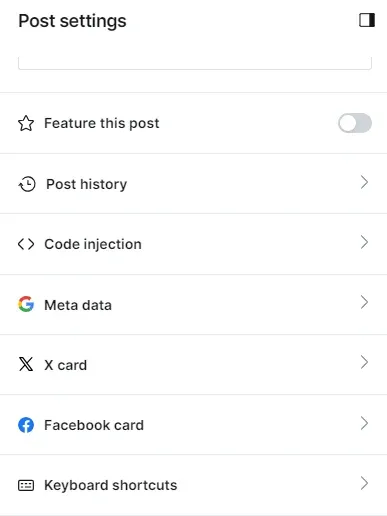
This feature ensures that content shared on social media is optimally presented, thereby enhancing its appearance and visibility.
This not only helps optimize the site's online presence but also generates additional organic traffic through these platforms.
4.Content: The Heart of SEO in Ghost CMS
Quality content is at the core of any effective SEO strategy. In the world of SEO, content is king.
Well-written, informative, and relevant content not only engages readers but is also fundamental to improving rankings in search engines.
Good content should answer users' questions, naturally integrate relevant keywords, and provide added value that encourages interaction and sharing.
Ghost CMS Features that Enhance Content Creation and Management
Ghost CMS facilitates the creation and management of quality content through a clean and intuitive user interface. It offers a rich text editor that allows easy formatting of content and the ability to integrate various types of media.

Additionally, Ghost CMS supports Markdown, allowing writers to quickly format their text without worrying about HTML layout.
This ease of content creation and management helps users focus on producing quality content without worrying about technical details.
Bonus: Developing an SEO-Focused Content Strategy
Developing an SEO-focused content strategy involves planning, creating, and publishing content that resonates with the target audience and also optimizes the site for search engines.
This includes keyword research, developing content clusters, creating content around keywords, and regularly updating content to keep it current and relevant.
It's also important to structure content logically, using headings and subheadings (H2, H3, etc.) to improve readability and indexing by search engines.
5.Link Management: Internal Linking in Ghost CMS
Link building is an essential pillar of SEO. Internal links, which connect pages within the same site, help structure the site logically, promoting better navigation for users and search engines.
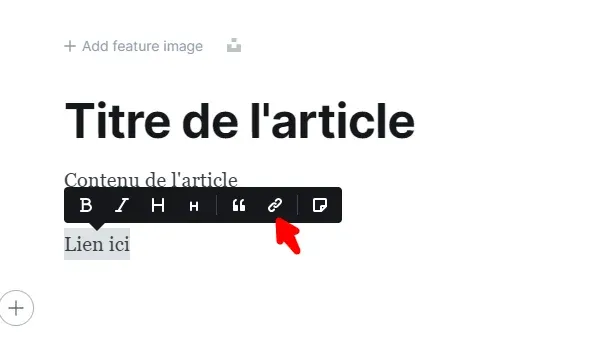
Ghost CMS makes internal link management easy. The Ghost editor allows for easy insertion of internal links within articles, contributing to a better site structure and navigability.
Bonus: Regular Link Audits and Optimization Strategies
Regular audits are essential to maintain the health of a site's link profile. This involves checking the validity of internal and external links, ensuring broken links are fixed, and poor-quality backlinks are removed.
Using SEO tools like Ahrefs or Semrush to analyze the link profile can help identify improvement opportunities and adjust the strategy for better SEO performance.
6.Image Optimization for SEO in Ghost CMS
Resizing and Compressing Images
Image optimization is a crucial step in improving a website's SEO performance. In Ghost CMS, images can be resized and compressed to reduce their file size without sacrificing quality.
This is typically done using online tools or plugins that compress images before uploading them to the site. A smaller file size means faster loading times, an important factor for SEO and user experience.
Importance of Alt Text and Descriptive File Names
Alt text and descriptive file names are essential for image SEO. Alt text helps search engines understand the content and context of an image, which is particularly important for accessibility and ranking in image search results.

To create your alt text in Ghost CMS, press the 'alt' button located on the right in the caption area, enter your alt text, then press the button again to resume caption text editing.
Additionally, descriptive file names containing relevant keywords can also contribute to improving the site's ranking.
Enabling "lazy" loading and ensuring responsive images
Lazy loading is a technique that only loads images when they enter the user's visible screen area.
This method can significantly improve page loading performance, thus reducing waiting times for users and enhancing the overall site experience.
Furthermore, ensuring that images are responsive, meaning they adapt to different screen sizes, is crucial for an accessible and performant site across all devices, another important point for SEO.
Ghost CMS supports this feature; you just need to activate it in your site settings to have a faster loading site.
7.Mobile-Friendly Design: A Pillar of SEO in Ghost CMS
Mobile responsiveness has become an essential element of modern SEO. With the constant increase in mobile device usage for internet access, search engines like Google prioritize websites that offer a good user experience on mobile.
This means a site must be well-designed and easily navigable on small screens, with fast loading times and accessible content to rank well in mobile search results.
Features in Ghost CMS that Support Mobile-Friendly Design
Ghost CMS meets the requirements of mobile SEO with its responsive and mobile-optimized themes.
These themes automatically adapt to the user's screen size, ensuring a smooth and intuitive browsing experience on all devices.
Additionally, the platform allows for easy optimization of mobile elements, such as menus and images, ensuring that content is always presented in the best possible way, regardless of the device used.
Best Practices for Optimizing Ghost CMS Themes for Mobile Devices
To optimize a Ghost CMS site for mobile devices, it's important to choose themes designed with a mobile-first approach.
These themes are developed prioritizing the mobile experience, thus ensuring optimal performance and accessibility on smartphones and tablets.
It's also advisable to regularly test the site on different mobile devices to ensure its responsiveness and address any display or performance issues.
Selection and Customization of Themes for Optimal SEO
Selecting a fast theme is essential to optimize the SEO of your Ghost CMS site. A fast-loading theme not only improves user experience but also your position in search engines.
When selecting a theme, prioritize those designed with a minimalist approach, avoiding unnecessary features that could slow down your site. Check the performance scores of themes using tools like Google PageSpeed Insights to ensure they meet high-speed standards.
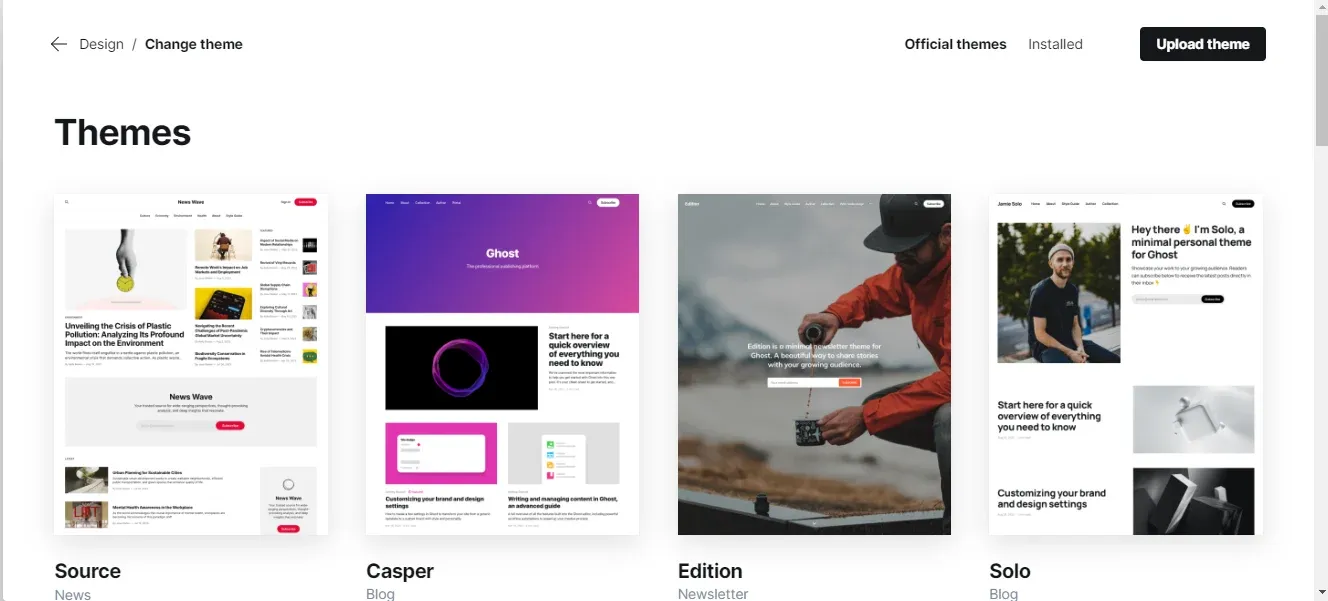
When customizing your Ghost CMS theme, it's crucial to maintain a balance between aesthetics and performance. Remember to use image compression and lazy loading to reduce loading times.
For advanced users, you can optimize CSS stylesheets and JavaScript files to reduce their size.
Avoid excessive web fonts and heavy animations that can slow down your site. Also, ensure that customization does not harm the mobile responsiveness of the theme.
Advanced SEO Strategies with Ghost CMS
Effective Implementation of Canonical URLs
Canonical URLs play a crucial role in preventing duplicate content issues. They indicate to search engines which version of a given page should be considered the main version.
In Ghost CMS, you can set canonical URLs for each page and article to ensure that the correct version is indexed.
This is particularly useful when publishing similar or shared content across multiple pages, clearly indicating to search engines which page should be prioritized.
Configuration and Optimization of XML Sitemaps
An XML sitemap is essential to help search engines effectively index your site. Ghost CMS automatically generates an XML sitemap, but it's important to check and optimize it regularly.
Ensure it includes all relevant pages and is updated whenever new content is published.
Once verified, submit your sitemap to Google Search Console so your content can be indexed more quickly.
Proper management of the XML sitemap ensures that search engines can easily discover and index all of your content.
Managing Duplicate Content Issues
Duplicate content can seriously harm your SEO. Ghost CMS offers several tools to manage and avoid duplicate content. In addition to using canonical URLs, ensure you write unique descriptions and titles for each page and article.
If republishing content from other sources, ensure you add unique value or commentary to differentiate your content from the original.
Structured Data and Rich Snippets in Ghost CMS
Understanding the Role of Structured Data in SEO
Structured data plays a crucial role in modern SEO by helping search engines understand the content and semantic context of a website.
They allow for information to be classified in an organized and understandable way, thus facilitating its indexing and presentation in SERPs.
Using structured data can improve a site's visibility by generating rich snippets, which attract more attention and clicks in search results.
How Ghost CMS Supports Structured Data Integration
Ghost CMS facilitates the integration of structured data into its publications.
Unlike other CMS platforms like WordPress, the platform automatically includes certain forms of structured data, such as Schema.org tags for blog articles, thus improving SEO without additional effort from the user.
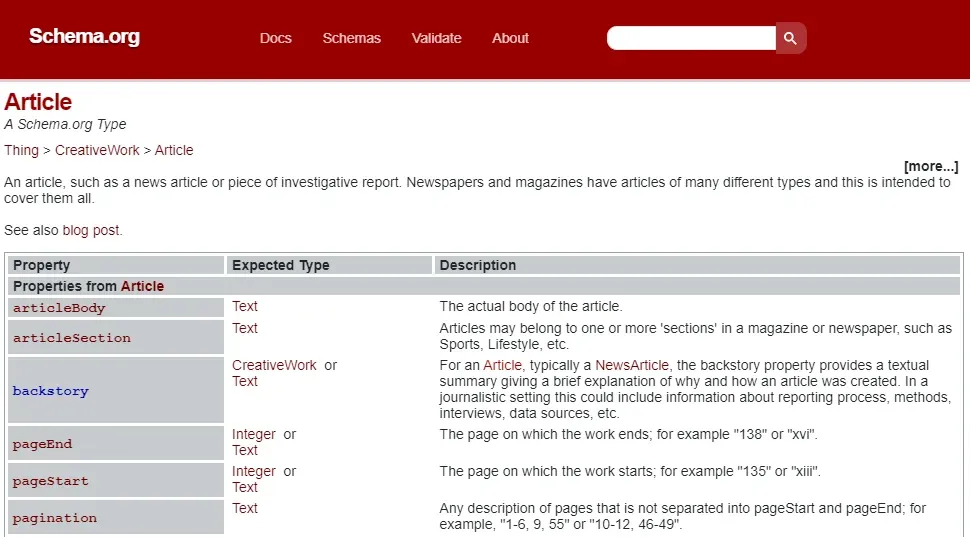
Additionally, Ghost allows for advanced customization via code injection, offering the ability to add more specific types of structured data as needed by the site.
Tips for Harnessing Structured Data for Rich Snippets in Search Results
To maximize the effectiveness of structured data in Ghost CMS:
- Use tools like Google's Structured Data Testing Tool to test and validate your structured data.
- Add relevant structured data types for your content, such as product reviews, events, FAQs, etc.
- Ensure the structured data you add is accurate and faithfully reflects the content of your page.
- Follow Google's guidelines on structured data to avoid penalties related to incorrect use.
By effectively integrating structured data into your Ghost CMS site, you'll not only improve your SEO but also enhance the user experience by providing clear and direct information in search results.
Monitoring and Analyzing SEO Performance in Ghost CMS
Tools and Techniques for Monitoring SEO Performance
Monitoring and analyzing SEO performance is essential to assess the effectiveness of your SEO strategy on a Ghost CMS site.
Tools like Google Analytics and Google Search Console are indispensable for this task. They provide detailed data on traffic, page performance, keywords, and other essential metrics.
To link your site to Google Analytics and Search Console, you only need to add the tracking tags to the Code Injection field of your site.
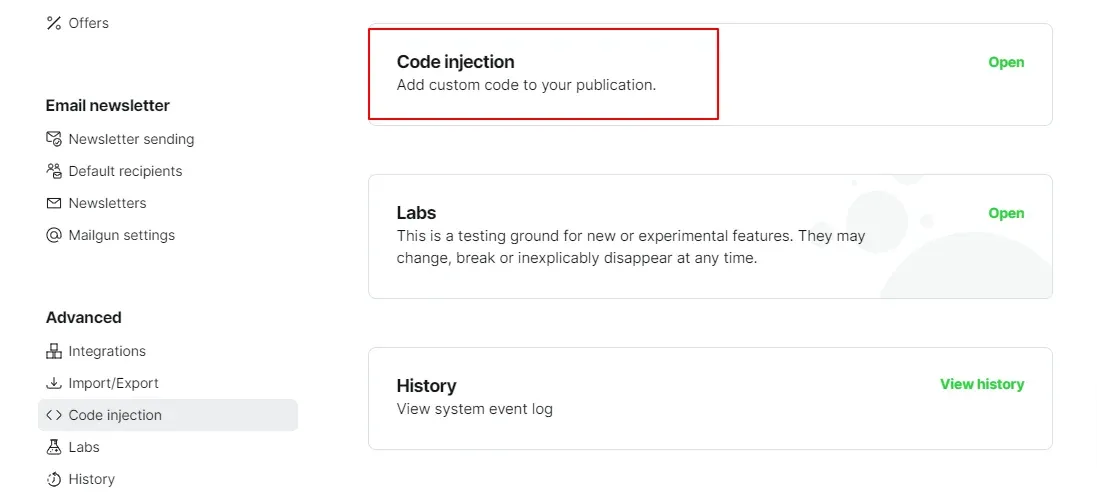
By integrating these tools into your Ghost site, you can closely monitor your SEO performance and gain valuable insights into visitor behaviour.
Interpreting Analytics to Guide SEO Strategy
Interpreting the data collected by these tools is essential to guide your SEO strategy. Analyze traffic trends, keywords that generate the most visits, and top-performing pages.
Identify areas for improvement, such as pages with high bounce rates or slow loading times.
This information will help you understand what is working well and what needs to be optimized to enhance your visibility and ranking in search results.
Continual Adjustment of SEO Tactics Based on Performance Data
Based on the analyses, continually adjust and refine your SEO strategy. This may include keyword optimization, improving content quality, adjusting site structure, and optimizing images and metadata.
Regular performance tracking will allow you to remain responsive to changes in search engine algorithms and user behaviour, ensuring that your site remains competitive and effective in terms of SEO.
Conclusion
SEO optimization in Ghost CMS is a key element in increasing visibility and ensuring the success of any website.
Throughout this article, we have explored various strategies and practices to improve SEO, from choosing and customizing themes to optimizing images and effectively managing links.
The judicious use of Ghost CMS's built-in features, such as structured data and rich snippets, as well as regular monitoring and analysis of SEO performance, are essential to maintain and improve rankings in search engines.
It is crucial to remain committed to your SEO efforts and stay abreast of new trends and algorithm updates.
The world of SEO is constantly evolving, and adaptability is key to remaining competitive. By adopting a proactive approach and regularly updating your SEO strategy, you can ensure that your Ghost CMS site remains relevant, performant, and visible in the ever-changing digital landscape.
Remember, SEO is a marathon, not a sprint. Continuous efforts and strategic adjustments are essential to achieve and maintain a strong and effective online presence.


